We’re into the second week of Russia’s invasion of Ukraine, a nasty 2022 surprise that has shaken most of the world outside Ukraine, while within it is…horrendous. The situation is terrifying, and yet from afar: so inspiring: who knew that humans could be so…human.
This affects many of us on a personal, private level which, to be perfectly honest, took the breath from my being; smashed a new reality against our hearts. For American Ashkenazi Jews, not so far removed from Eastern Europe, it suddenly became alive. My grandfather came from a shtedl near Kyiv. The ashes he had left behind, the dead Jews, the destroyed culture of over 1,000 years of Jewish life in Ukraine, had rekindled.
Each morning I wake up, check my phone first for Covid numbers, next to make sure that Zelensky is still alive, that Kyiv is still…holding on. Zelensky has become a legend, near biblical in stature; super-hero sized: from lawyer, comedian, dance-champion, and the Ukrainian voice of Paddington Bear, to dashing through the war-scarred streets of Kyiv, rallying the troops, filing applications with the EU, with the International Court of Law, he tweets to the world the leaders who are in support and stands up to those who are not.
Much of we, the descendants of those who fled Ukraine, Russia, and much of Eastern Europe, knew little of where our parents, grandparents, great grandparents fled from. They were too traumatised to pass along their own heritage, their lives and culture in “the old country”—and believe me, it was so traumatic. They didn’t walk across Europe and sail in steerage across the perilous sea on a whim.
And when they came to America, the “Golden Land” it was a new start. Many, like my grandfather, never spoke Russian again. (Ukraine was part of Russia, like California was once part of Spain/Mexico, Calais part of England and so forth) They became Americans.
It was left to Solomon Rabinovich, aka Sholem Aleichem (meaning, in Yiddish, Peace be with you), to tell the stories of what their grandparents went through. Narrated by Tevye the Milkman, the stories and vignettes were woven into the musical Fiddler on the Roof. This heartfelt, music-lifted, gave American Jews a portrait of life in the shtedl. Their/our ancestors fled the shtetl on foot, walked across mountains and valleys to reach a place of safety. My own grandfather walked to somewhere on the Baltic, and fled steerage to the new world, new life. Russia wanted his life for a soldier; he would sooner walk across half the world to escape. Later, it was arranged; he would bring over his 8 sisters and brothers, his parents, said the Uncle.
The old country had given suffering, pograms and massacres, leading up to the holocaust when the last fragment of Russian/Ukrainian Jews were literally subsumed by the fire of hate. Growing up we had no idea that there was anything Jewish left in Russia/Kyiv/Ukraine/shtetls, because we had no-one left. I imagined an emptiness; a land without Jewish culture where once it had flourished.
I didn’t even know that my grandfather spoke Russian, until I cleaned out my parents house and found the letters. “Mendel” wrote the uncle (Mendel? Wasn’t my grandfather’s name Max? I thought if anything it might have once been Moshe. But no: here it is written: Mendel. (And Uncle? I didn’t know we had ever had an uncle) “we thought you were dead too”. Dead, too? The letter went on…to describe how 7 of my grandfathers 8 siblings were murdered, along with his parents.
But who knew, that fragments of the Jewish community survived; contributed to Ukrainian life. And now, as Ukraine is attacked so brutally, being led by a Jewish president, Zelensky, a brave hero of a human (Ukraine's prime minister, Volodymyr Groysman, is also Jewish, making Ukraine the only country besides Israel to have two Jewish heads of state.). As well as bravely leading the people of Ukraine, Zelensky has become, after 350 years of Cossack-inspired racism, a symbol of healing.
I can only imagine my grandfather looking, from the other side of the world, at his homeland, and feeling that while he had fled Ukraine because as a Jew he had no place there, now A Jew was leading the way for all Ukrainians. And I am sure he would have felt proud. After so long in exhile (because he was always in exhile, no matter how American he became; life on his little plot of land in suburban California was like a little Ukrainian outpost: filled with organic gardening and sunflowers, watermelon, vodka, kasha, stuffed cabbage which we called holishkas, and PICKLES. Always pickles. He made the BEST PICKLES). How much did he love pickles? Long before I was born, he had stopped parking the car in the garage, built shelves on all the walls, and filled them with jars and jars and jars of his pickles. It was the most beautiful smelling place I would ever imagine.
Max Dubowsky, my grandfather, on his NYC rooftop.
All summer we had garden parties: here with my grandmother and aunt, we cousins loved being in the garden. To our left was the sunflower plot, to the right, the watermelon patch. We were sitting under the orange tree. It was like a little gan eden. (garden of eden).
I ordered these beautiful pickles and nice fat sausage from ourfood.uk SO DELISH!
This pickle tastes soooooo good, sigh, it tastes like the happy parts of my childhood. it tastes like my grandfather made it!
These I made myself: Pickled Cherry/Plum Tomatoes
My grandfather made them with big fat tomatoes, and pickled them green. I prefer ripe red small sweet cherry tomatoes. This recipe is more a rough description rather than specific recipe, because: who knows how many tomatoes you will want to pickle? Use a standard salt water ratio brine, available on any fermenting internet site.
Fill a large crock or jar with well washed cherry tomatoes or tiny plum tomatoes, or a combination of both. [I usually prick each tomato with a bamboo skewer; it helps the brine to permeate them. To pickle more quickly, they may be sliced into, a shallow slit that only permeates the skin, not cut deep into the flesh].
As you're filling up the jar, scatter garlic cloves, whole or sliced, as well as a few black peppercorns, and several small sprigs of dill. (Optional: instead of dill, use horseradish leaf, and for a lighter, rounder flavour, add a small spoonful of sugar).
Pour the cold salt-water brine over the top, seal, and leave for a few days, chilled. Take care that the tomatoes are kept covered by the brine; if you have any doubt, sprinkle a little bit of salt on top the twist the lid shut again and let the pickling progress. A jar used to brine sauerkraut or pickles is good for this, as it keeps the tomatoes submerged; as long as they are submerged they shouldn’t spoil.
They are ready when they taste salty, sour, tender and so refreshing you might just feel that you’ve slapped your own face out of happiness.
To help feed those fleeing for their lives-
here is the link to Jose Andres World Central Kitchen

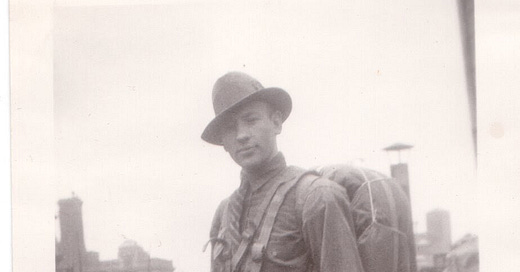



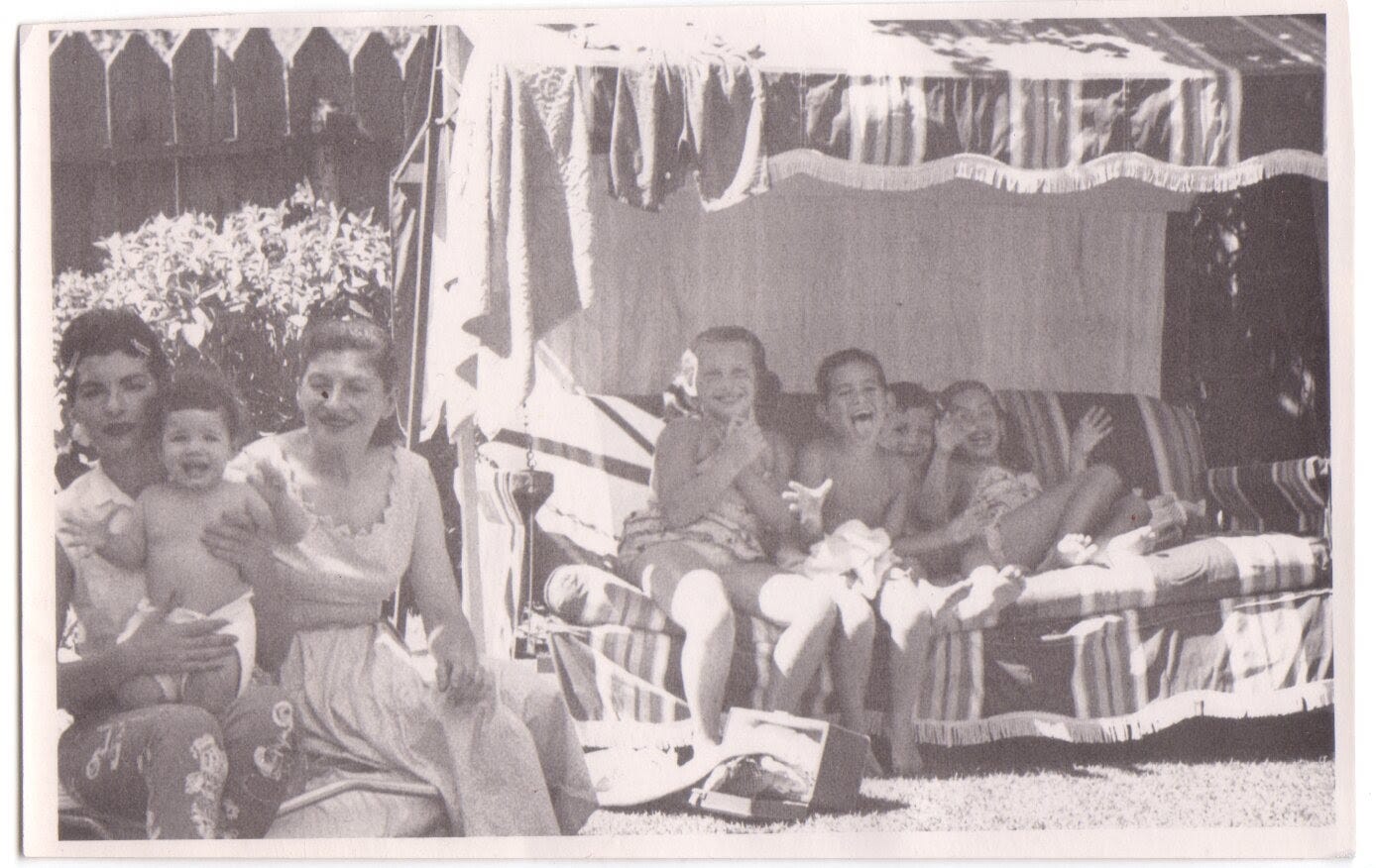
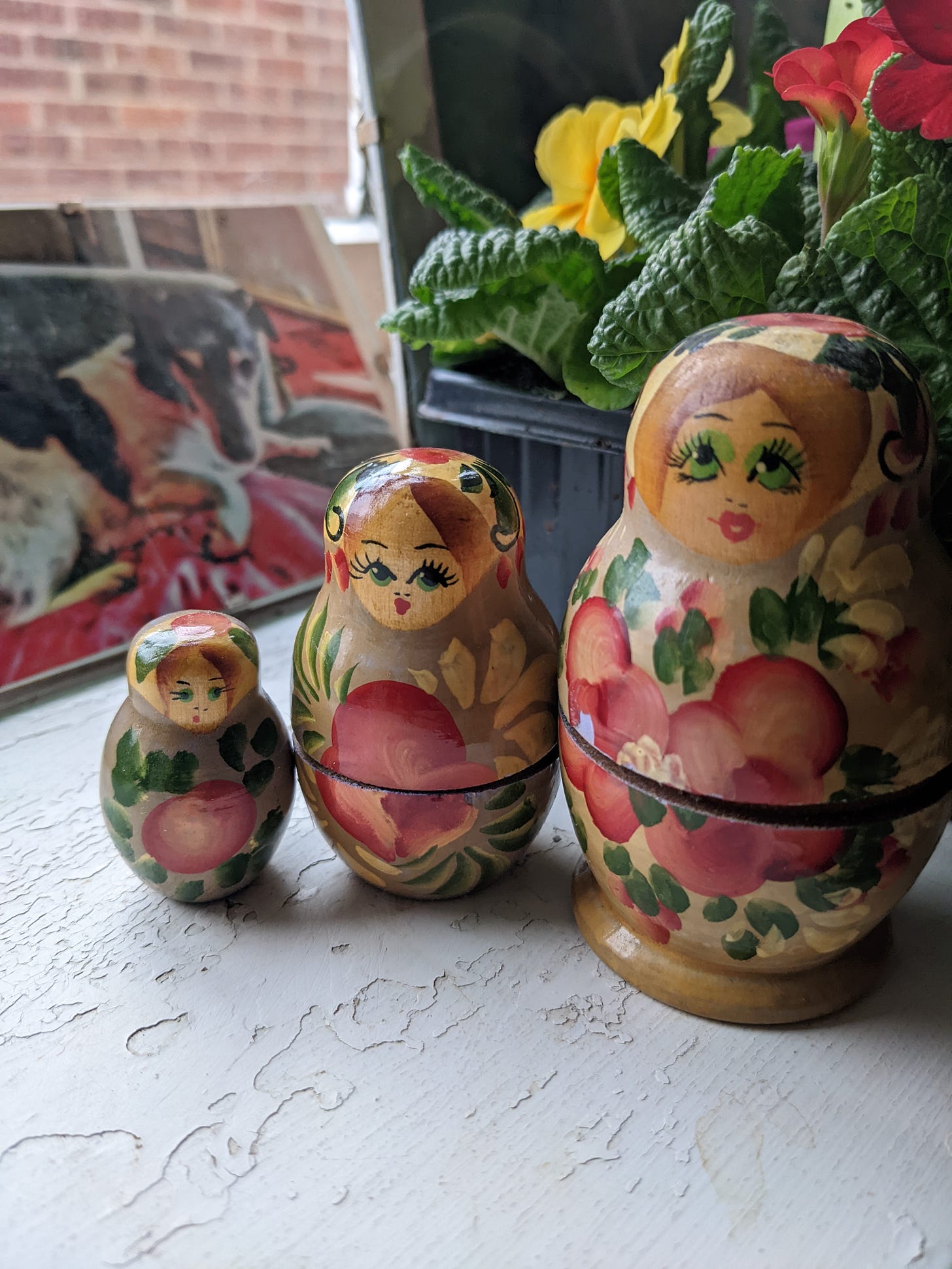
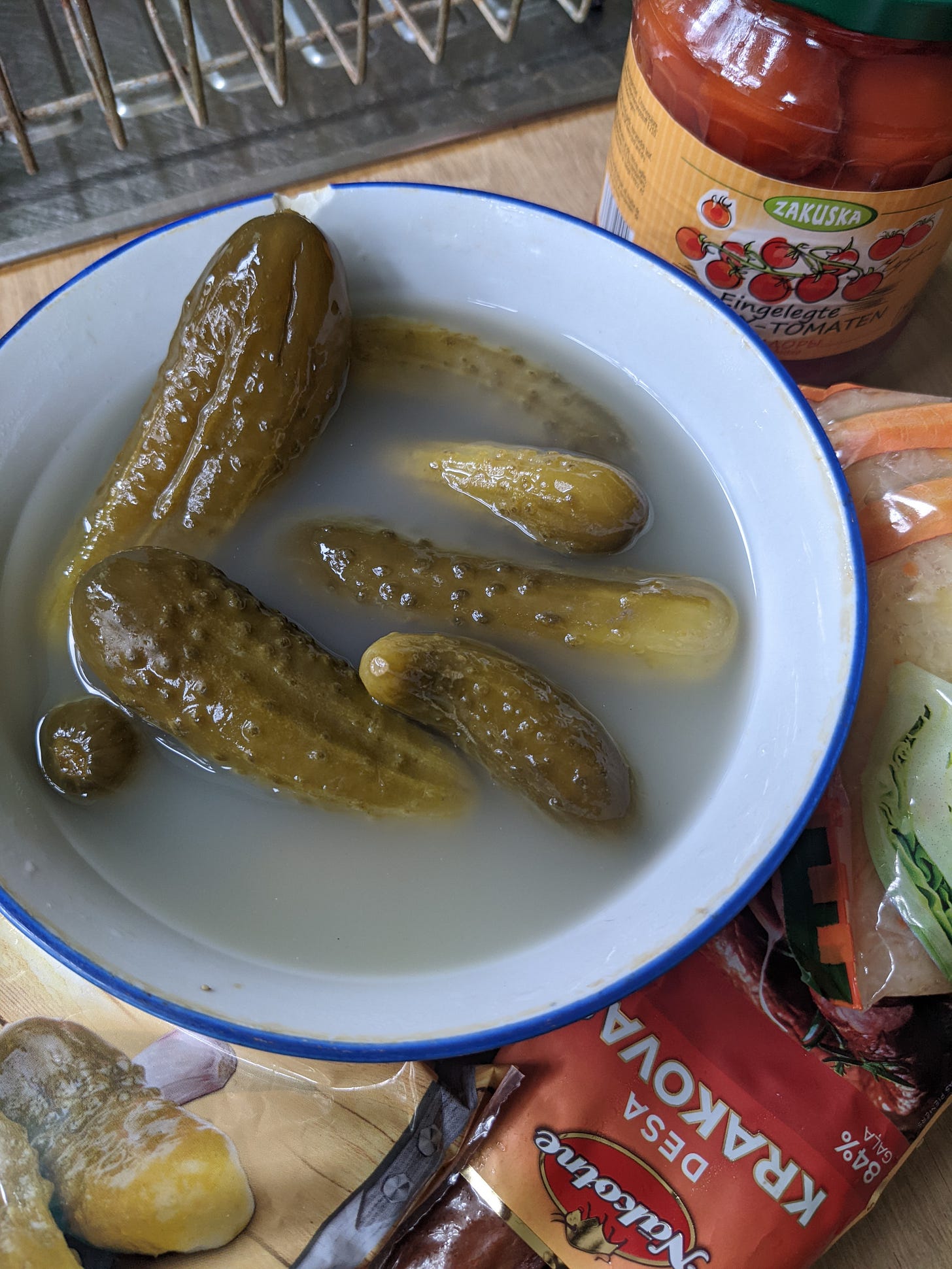
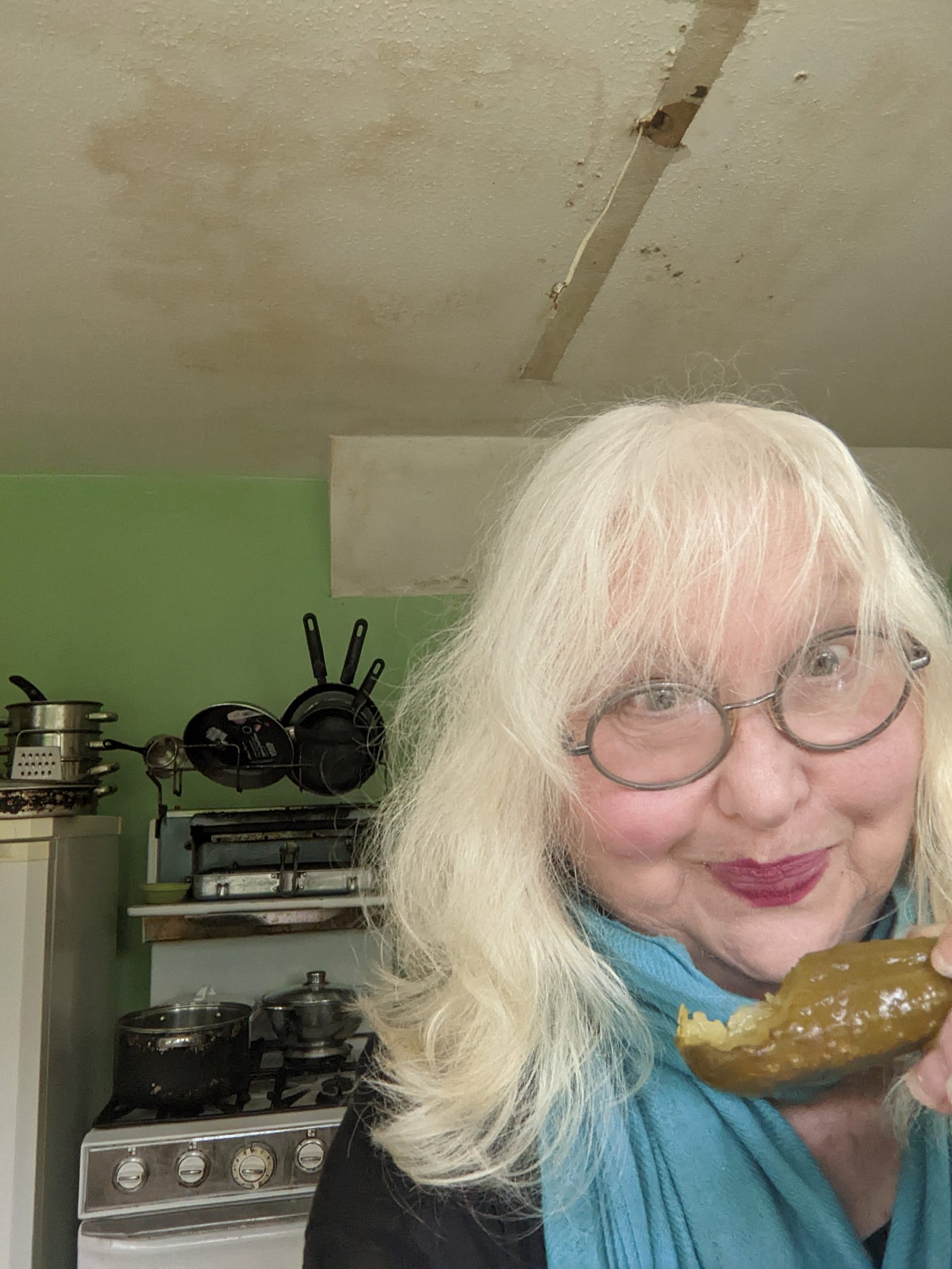
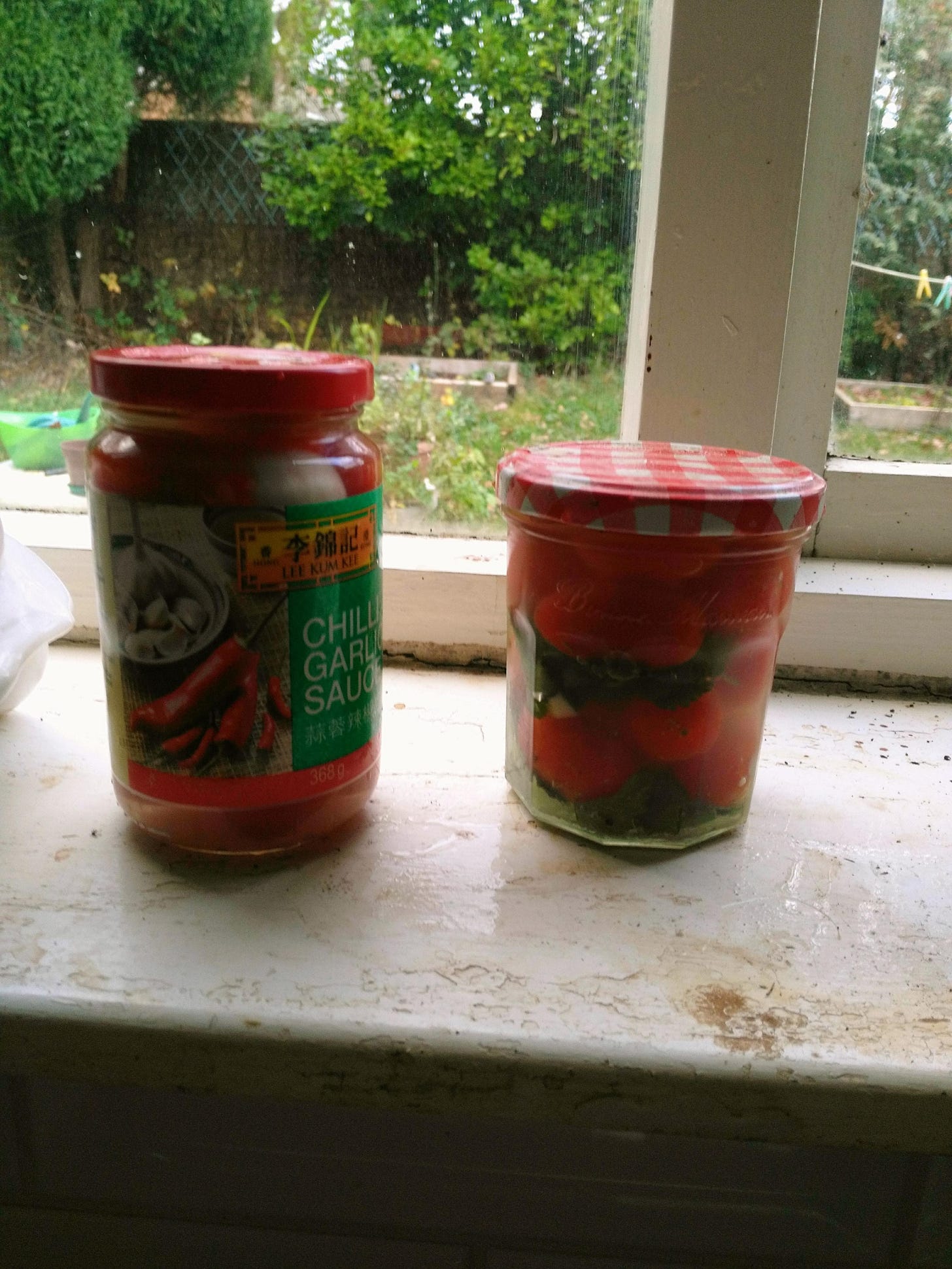
My mother's father was born near Kyiv. I have been in a real funk since the invasion commenced, although I fully expected that Putin hadn't massed nearly 200,000 just for show. A minor correction you may want to make - Volodymyr Groysman ceased to be prime minister in 2020, but there are two or three other Jewish Ukrainians in key governmental positions.
Exquisite, impassioned writing, Marlena, that covers so much ground. Brava ! Straight from the heart. How proud your grandfather would be of you ! And of course, I yearn now for a proper Ukrainian pickle. XXX